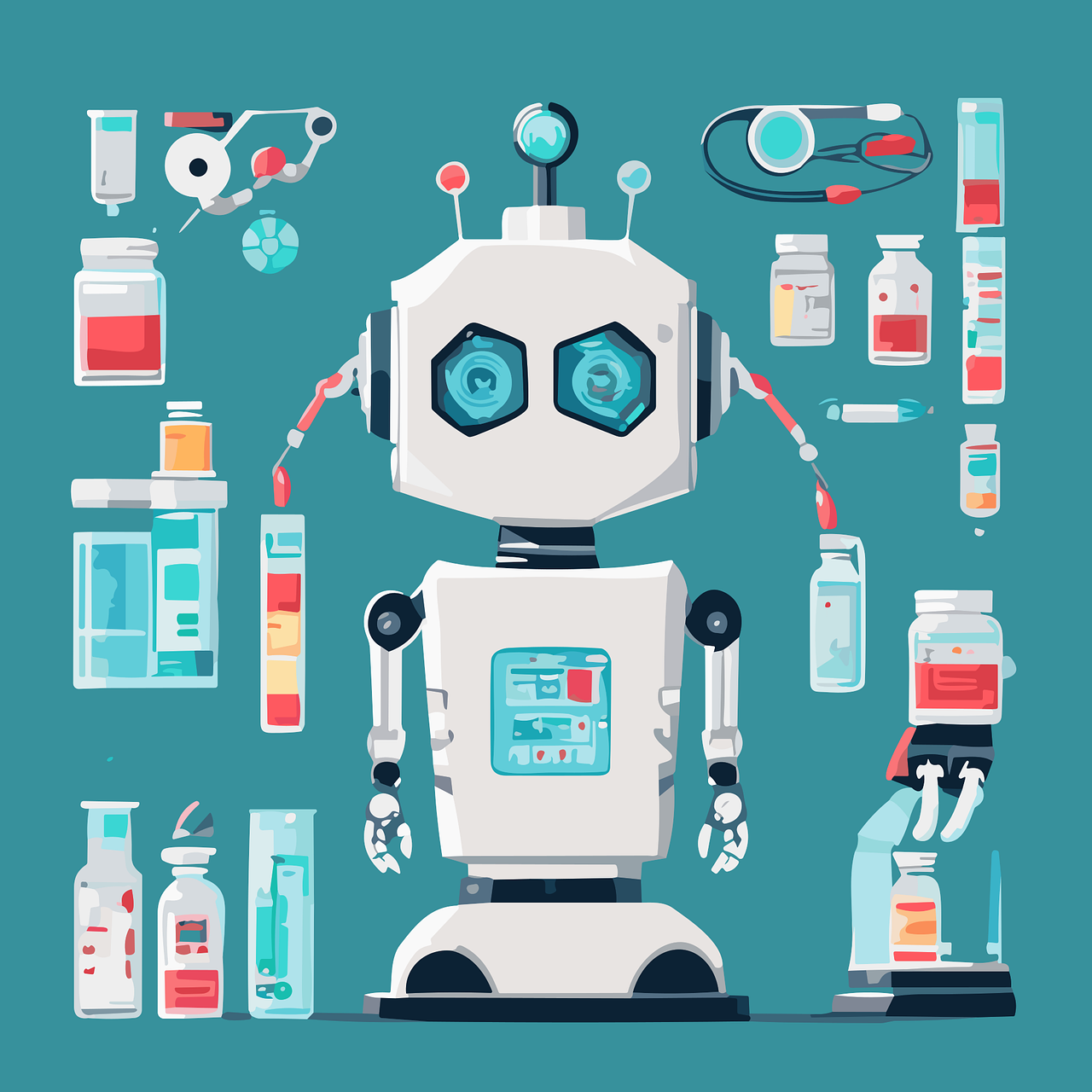Imagine a world where aging is no longer an inevitable part of life, where the boundaries of mortality are pushed further and further away. This is the world that technology is striving to create, as scientists and researchers embark on a quest for immortality. Through a combination of advanced technologies, innovative medical treatments, and groundbreaking research, efforts are being made to extend the human lifespan. In this article, we will explore the exciting advancements in technology that are paving the way for a future where living longer, healthier lives is not just a dream but a reality.
Historical Aspirations of Living Forever
Throughout history, humans have been captivated by the idea of immortality. Stories from mythology, religion, and folklore abound with tales of individuals or mythical creatures who possess the secret to eternal life. From the mythical Fountain of Youth to the tales of the elixir of immortality, humans have long sought ways to transcend the limitations of mortality.
Why Extend Human Life?
The fascination with extending lifespan is deeply rooted in the human psyche. The desire to live longer stems from a profound appreciation for the beauty and complexity of life itself. With a longer lifespan, one could potentially achieve more personal accomplishments, pursue multiple careers, and have more time to spend with loved ones. Additionally, a longer lifespan could have significant social and economic benefits. Individuals would have more time to contribute to society, share their wisdom and experiences, and make a lasting impact on future generations.

Modern Health Advancement
In recent years, advancements in medicine and healthcare have revolutionized our understanding of aging and longevity. Research and technology have paved the way for therapies, treatments, and interventions that can help extend human life. By tackling diseases and improving overall health, the potential for a longer lifespan has become more attainable than ever before.
Introduction to Longevity Tech
The field of longevity tech encompasses various disciplines and industries working towards the goal of extending human life. From biotech companies to startups focused on regenerative medicine, the industry is driven by the collective desire to unlock the secrets of aging and develop cutting-edge technologies to slow down or reverse the process.
Prominent figures in the field, such as Dr. Aubrey de Grey and Peter Diamandis, have dedicated their careers to pushing the boundaries of longevity research. Their work has helped create awareness and support for the importance of extending the human lifespan.
The longevity tech market is rapidly growing, with projections estimating it to reach billions of dollars in the coming years. This surge in interest and investment speaks to the hope and belief in the potential of these technologies to transform the way we age and live.

Key Scientific Approaches to Lifespan Extension
Scientists and researchers are exploring various scientific approaches to extending human lifespan. One such approach is genetic engineering, which involves manipulating the DNA and genes to enhance cellular repair mechanisms and slow down the aging process. By understanding the genetic factors that influence aging and longevity, scientists hope to develop interventions that can extend healthy lifespans.
Regenerative medicine is another promising avenue in the quest for longevity. Through the use of stem cells and tissue engineering, scientists aim to regenerate damaged or degenerated tissues and organs, effectively reversing the effects of aging and disease.
nanotechnology, with its ability to manipulate matter on the atomic and molecular scale, is also playing a crucial role in longevity research. Researchers are exploring nanoscale interventions that can repair and rejuvenate cells, potentially preventing age-related damage and extending lifespan.
The Role of AI in Longevity Tech
Artificial Intelligence (AI) is revolutionizing the field of longevity tech. With vast amounts of data at its disposal, AI systems can provide valuable insights into the aging process and its underlying mechanisms. By analyzing genomic data, lifestyle factors, and medical records, AI algorithms can help researchers understand how different factors contribute to aging and identify potential intervention targets.
predictive modeling is another area where AI is making a significant impact. By analyzing large datasets and patterns, AI algorithms can predict health deterioration and identify potential diseases at an early stage. This early detection allows for timely interventions, potentially extending healthy lifespans and improving overall quality of life.
Personalized medicine, enabled by AI, holds immense promise in longevity tech. With AI’s ability to analyze individual characteristics, including genetic variations and lifestyle factors, personalized treatment plans can be developed. Tailored interventions and therapies can have a more significant impact on an individual’s health, potentially leading to longer, healthier lives.

Ethical Implications of Immortality
While the pursuit of immortality is captivating, it raises several ethical concerns. One of the major concerns is the impact on population growth and resource management. With longer lifespans, the world’s population could rapidly increase, straining resources and potentially leading to overpopulation. Addressing this issue would require careful planning and consideration to ensure sustainable development and fair distribution of resources.
Socio-economic inequality is another ethical consideration. If only the wealthy have access to longevity technologies, it could exacerbate existing disparities between the rich and the poor. The affordability and accessibility of these technologies must be addressed to ensure that everyone has a fair chance at benefiting from the advancements in longevity research.
The concept of a “natural” lifespan also comes into play when discussing immortality. Some argue that extending human life beyond its natural limits interferes with the cycle of life and death. The ethical implications of defying nature’s intended lifespan raise questions about what it means to truly live and the impact on the overall human experience.
Regulatory Hurdles in Longevity Tech
The development and adoption of longevity technologies face significant regulatory hurdles. Navigating healthcare laws and regulations, particularly when it comes to genetic engineering and regenerative medicine, requires careful consideration and compliance. Ensuring the safety and efficacy of these technologies is crucial for their successful integration into healthcare systems.
Obtaining approvals for human trials can be a lengthy and complex process. The rigorous standards set by regulatory bodies are in place to protect patients and ensure ethical research practices. However, this can also slow down the development and availability of potentially life-extending technologies.
privacy and data management are additional challenges in the world of longevity tech. The vast amount of personal data collected for research and analysis raises concerns about data security and confidentiality. Protecting individuals’ privacy while harnessing the power of data to drive innovation in longevity research is a delicate balance that needs to be struck.

Current Breakthroughs and Discoveries
Significant research efforts are currently underway, focusing on extending human lifespan and improving healthspan (the period of life lived in good health). From pharmaceutical interventions to dietary interventions and lifestyle modifications, scientists and researchers are exploring various strategies to slow down aging and age-related diseases.
Technological innovations are also aiding in this cause. Wearable devices that track biometric data, such as heart rate and sleep patterns, allow individuals to monitor and manage their health more effectively. Furthermore, advances in telemedicine and remote monitoring enable healthcare professionals to provide personalized care and interventions, even from a distance.
The Future of Longevity Tech
Predictions for lifespan in the future point to a significant increase, with some experts even suggesting that it may be possible to live well beyond 100 years. However, achieving this feat would require breakthroughs in various fields, including genetics, regenerative medicine, and nanotechnology.
Potential breakthroughs on the horizon include the development of targeted gene therapies that can repair or replace damaged genes, rejuvenation therapies that can reverse the effects of aging on a cellular level, and nanobots that can repair and regenerate tissues and organs. These advancements have the potential to revolutionize healthcare and extend the human lifespan to unprecedented lengths.
Adapting society to a longer lifespan is a crucial consideration for the future. From redefining retirement and adjusting social security systems to ensuring access to healthcare and creating opportunities for lifelong learning, society will need to evolve to accommodate an aging population. Embracing the potential of longevity tech and preparing for its implications will be essential for a thriving future.
In conclusion, the quest for immortality has been a driving force throughout human history. With advancements in modern medicine, the field of longevity tech is rapidly progressing towards extending the human lifespan. Genetic engineering, regenerative medicine, nanotechnology, and AI play crucial roles in this endeavor. However, ethical considerations, regulatory hurdles, and challenges in data management must be addressed. Nonetheless, current breakthroughs and discoveries give us hope for a future where living longer and healthier lives becomes a reality. As we look ahead, adapting society to a longer lifespan will be a pivotal task, ensuring that the benefits of longevity tech are felt by all. The quest for immortality continues, and with each step forward, we unlock new possibilities for the future of humanity.











